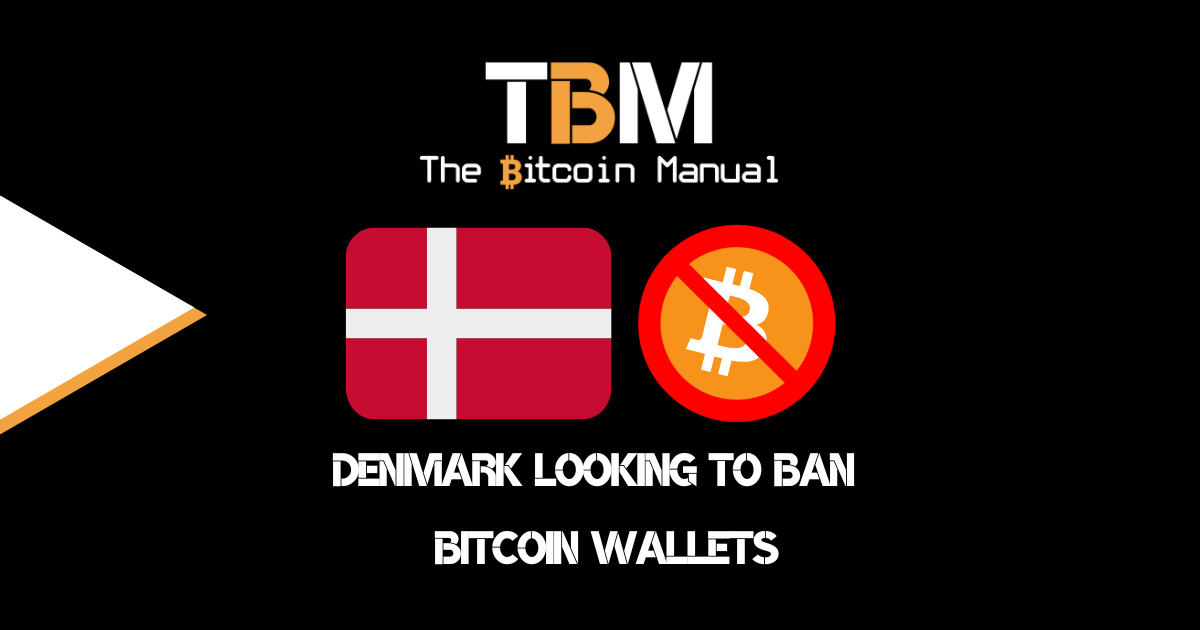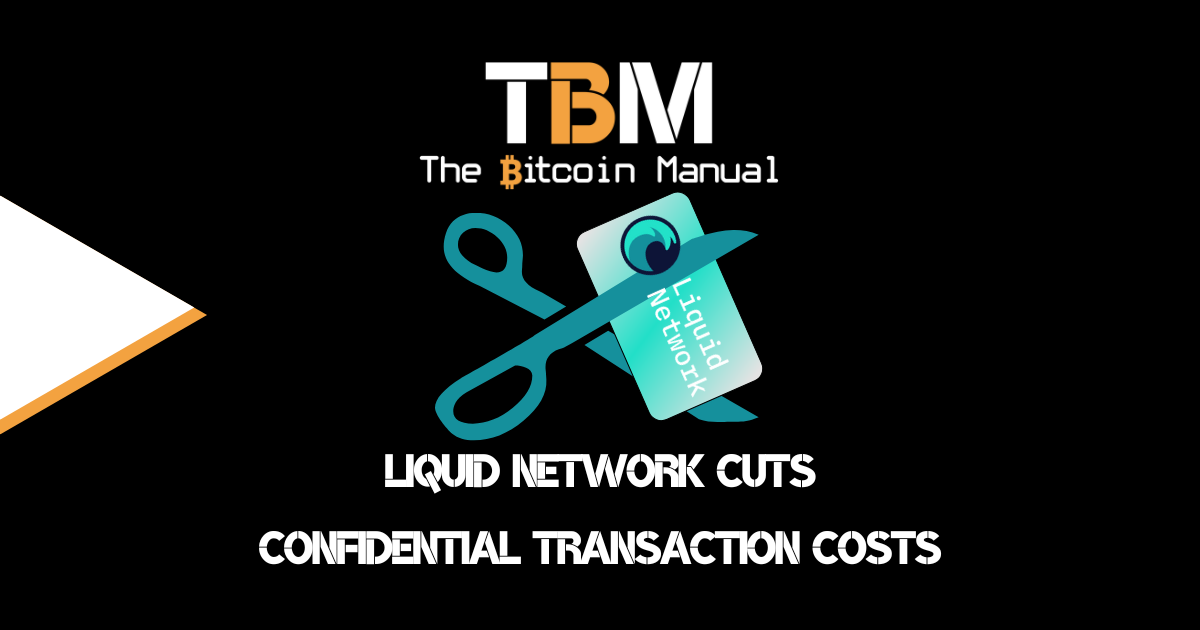According to figures from Danmarks Nationalbank’s survey of Danish citizens’ payment habits, approximately 272 million cash payments were made by citizens in 2023, totalling approximately kr. 84 billion in trade. This represents 8% of the country’s settlement, down from 10% in 2021.
Denmark is among the top twelve EU member states with the most cashless payment transactions and ranks third among the Nordic countries with the most cashless transactions, after Sweden and Finland.
It’s safe to say financial privacy isn’t a priority for most citizens, but for those who value instant settlement, lower fees and privacy cash provide a refuge. This refuge is eroding with time as merchants are pushed towards the surveillance economy to remain compliant.
Cash works for in-person transactions and small purchases, but if you’re interested in eCommerce or making large purchases outside the monitored digital payment networks provided, your alternative would be a private form of digital money like Bitcoin.
The trouble with Bitcoin
Bitcoin brings with it several concerns for regulators and governments.
- It isn’t subject to the rate of local currency debasement, so you can’t steal from your Bitcoin holders through inflation.
- When held in a non-custodial wallet, Bitcoin is censorship-resistant, so you cannot stop individuals from performing transactions or making trades.
- Bitcoin requires considerable resources and expertise for governments to monitor and enforce taxes.
- If used with privacy best practices, it becomes tough to know how much wealth your citizens hold and how they use that wealth.
As governments look for new sources of revenue and want to ensure you remain within their control and at the mercy of their economic decisions, they will try to close the door to Bitcoin or fearmonger you to avoid heading for the exit door.
One or all of these reasons are likely the motivations behind the Danish Financial Supervisory Authority (DFSA) ‘s proposal to ban so-called “unregulated” Bitcoin wallets.
DENMARK TO ABOUT TO BAN BITCOIN WALLETS
— Mikko Ohtamaa (@moo9000) June 26, 2024
We have finally reached this point.
In the latest DeFi guidance of Danish FSA, the regulator goes too far: The guidance tries to capture everything in crypto regulation, including your Bitcoin wallet, using "interface" argument. DFSA says… pic.twitter.com/F7jFuLhNqC
What are “unregulated wallets?
Unregulated or unhosted wallets is a fiat-funded PR term used to try to turn Bitcoin’s default use into an illegal-sounding practice. There is no such thing as an unregulated or unhosted wallet; EVERY individual or company requires a private key to interact with the blockchain. The regulated wallets would use the same infrastructure but would introduce a layer of trust and centralised control who would hold funds and sign transactions on your behalf.
Proponents of unregistered wallets want specific institutions to custody your Bitcoin in a permissioned system. This would re-introduce custodial risk and rehypothecation risk and create a centralised honeypot threat of attack, as well as social engineering attacks, all for the trade-off of allowing them to track your every move.
But regulators like the Danish Financial Supervisory Authority (DFSA) will not tell you that; they’ll gaslight you into thinking that this is for your safety and the greater good.
If we look at the motivations for the move, we will see that they are the same tired old tropes we’ve heard before.
Concerns fueling the ban
The DFSA’s primary concern centres on the potential for illicit activities on unregulated platforms. Bitcoin, with its inherent pseudonymity, can be attractive for money laundering and financing illegal operations.
Unregulated wallets, which operate outside the purview of traditional financial institutions, lack the Anti-Money Laundering (AML) and Know-Your-Customer (KYC) protocols that help authorities track suspicious transactions.
The DFSA worries that unregulated wallets could become a haven for criminals, undermining Denmark’s financial security.
They also point to instances of crypto scams and thefts facilitated by unregulated platforms, highlighting the risks associated with this technology.
A desire for control
Beyond security concerns, the DFSA might also be motivated by a desire for greater control over the Bitcoin market and the local on-ramps. By regulating all wallet providers and exchanges, the government gains a level of oversight into Bitcoin transactions.
This oversight could allow them to track trends, identify potential financial risks, stop users from trading or running for the exit, acquire a certain amount of Bitcoin and, of course, forcibly extract funds by collecting taxes on Bitcoin gains.
The proposed ban aligns with the broader European Union’s (EU) push for stricter cryptocurrency regulations under the Markets in Crypto Assets (MiCA) framework.
Expected to be fully implemented in 2025, MiCA aims to create a harmonised regulatory approach for cryptocurrencies across the EU. The DFSA’s proposal can be seen as a preemptive measure to ensure Danish regulations are compliant with the upcoming EU framework.
The community pushes back
The proposed ban has unsurprisingly met strong resistance from the Bitcoin and wider crypto community. Proponents of unregulated wallets argue that they represent a core principle of Bitcoin:
Financial self-sovereignty.
Unlike traditional banks, non-custodial wallets give users complete control over their Bitcoin holdings. This freedom empowers individuals and fosters a sense of financial independence.
Critics of the ban also argue that it stifles innovation. Decentralised finance (DeFi), a rapidly growing sector within the crypto ecosystem, relies heavily on interaction directly with the chain, to avoid trusted party risk.
A ban could cripple DeFi’s growth and investment in Denmark, potentially pushing businesses and talent to more crypto-friendly jurisdictions.
Furthermore, some argue that the DFSA’s concerns about illegal activity are overblown. As we’ve seen in the past, KYC doesn’t stop criminals who will always find ways to operate outside regulated systems.
Implementing KYC and AML protocols wouldn’t eliminate illegal activity; it creates a data honeypot that puts individuals at risk and makes it more cumbersome for users, harming only the average Dane who wants to hold and use Bitcoin.
Something is rotten in the state of Denmark
EU and Scandinavian countries are no strangers to regulating their industries to the point of uncompetitiveness. Bitcoin could be the next industry to deal with the delusions of paper pushers, we’ve already seen the EU wanting to ban mining and you can be sure that other parts of the Bitcoin stack will come under attack.
If implemented, this new rule will contradict the rest of the world’s treatment of BTC self-custody wallets.
The beauty of a digital commodity is that it recognises no borders, so even if this regulation goes through, it will not be the end of non-custodial wallets. No one can stop you from running software on your device, and VPNs can easily mask where you are in the world, so all this is just for show and to instil fear.
The DFSA’s proposal is still under discussion, and the outcome remains uncertain, but if it does go ahead, you can be sure plebs will provide solutions for Danes. While the Danish authorities will have to learn the hard way that you can’t ban Bitcoin; you can only ban yourself from Bitcoin.
What to do if the ban goes through?
This system would differentiate between custodial wallets, in which a third party holds the private keys, and non-custodial wallets, in which users have complete control.
Custodial wallets could be subject to stricter regulations, while non-custodial wallets could have lighter requirements, ensuring some level of oversight without stifling innovation.
Even if the DFSA’s ban is implemented, fully enforcing it might be challenging. The open-source nature of Bitcoin software and the ease of obtaining it online means that tech-savvy users could potentially evade the ban, obtaining software from outside Denmark or building their signing devices using single-board computers like Raspberry Pis.
This would create a “cat-and-mouse game” between authorities and determined Bitcoin users who can transact with users online to acquire non-kyc Bitcoin through P2P markets or offshore exchanges.
The ease at which any individual can bypass bans highlights the limitations of geographical bans in the digital world where an asset trades 24/7 via the any internet connection. Many countries have tried to ban Bitcoin in some way, shape, or form, and all have failed to completely remove the mining, storage, transfer and use of the worlds hardest money from their borders.




